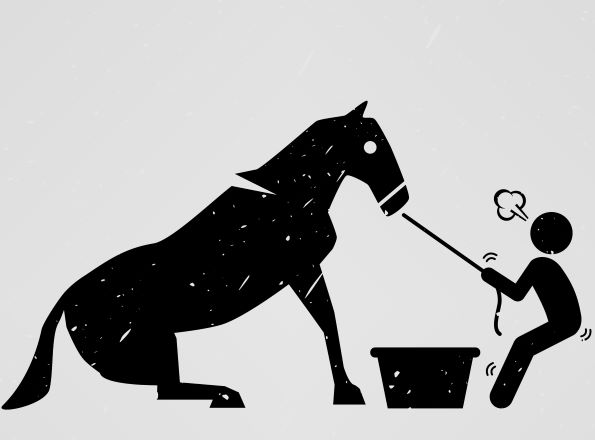From time to time I’ve been asked why I abandoned my white collar productivity (office productivity improvement) practice and launched a business in the textile industry instead. The short answer is that office productivity improvement was too hard a sell, spectacular results notwithstanding. CEOs, for any number of reasons, were reluctant to admit to any potential inefficiencies in their organizations in a head-in-the-sand kind of way.
This article that I first posted on LinkedIn in 2015 explains:
It’s frustrating enough to find that you can take a horse to the water but can’t make it drink. It becomes doubly frustrating if you know that the horse is dehydrated and really needs to drink but, for some reason, the animal shows no interest in the water at all. Maybe it’s an inherent genetic shortcoming that prevents it from realizing it’s dehydrated, or maybe it’s just plain mulishness.
That’s how it is in trying to draw the attention of business executives to the pervasive problem of white collar productivity that they don’t, or won’t, realize they have. I’m by no means the only white collar productivity improvement advocate to experience this frustration. Edward Shaw described it back in 2003, in his open letter to American CEOs about white collar productivity as : ” . . . the cause that’s remained an essentially taboo subject in corporate hallways for the past 30 years and more.”
He went on to add: ” . . . your non-productive workforce (i.e. white-collar plus some hourly) is working at no more than 50 percent capacity every single day! And the waste is killing you! This finding should astound you, but probably won’t, precisely because the profligate squandering of white-collar time has been so pervasive in big companies for so long now that everybody’s just stopped noticing it. It’s simply been rationalized away and accepted as being the ‘nature of the beast’ —an inherently unavoidable cost of doing business in large organized structures.”
I have been unable to trace Mr. Shaw—it seems that the foregoing were his last words on the topic. It’s as if he’d given up on the horse that won’t drink.
I did too.

Recent Comments